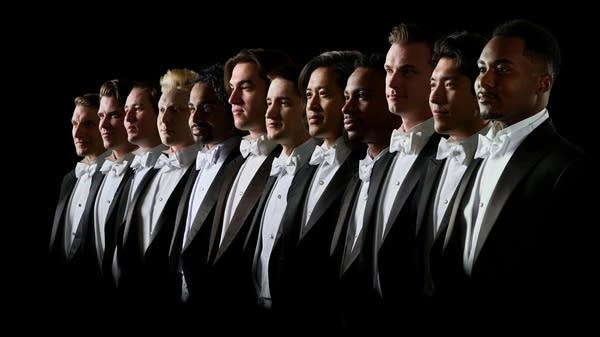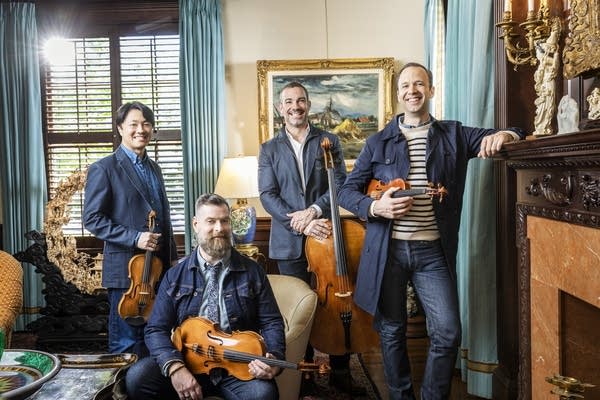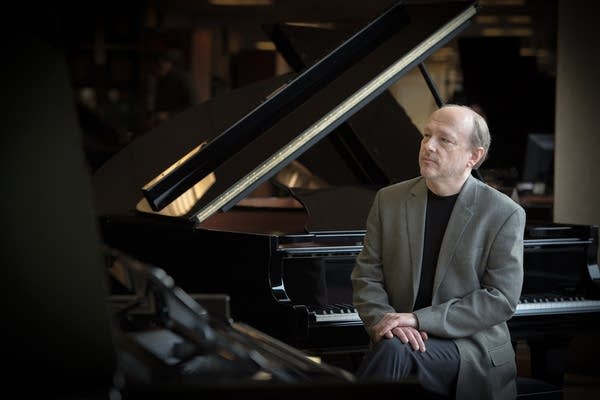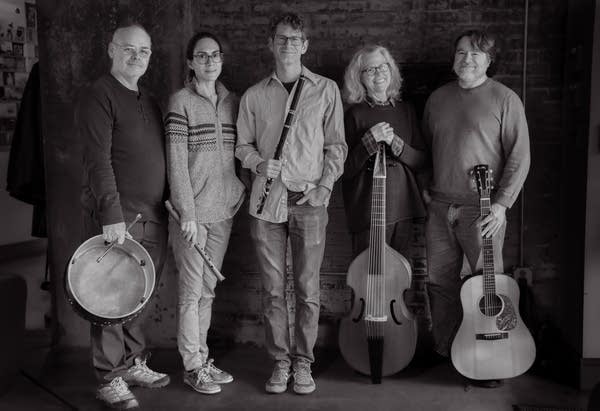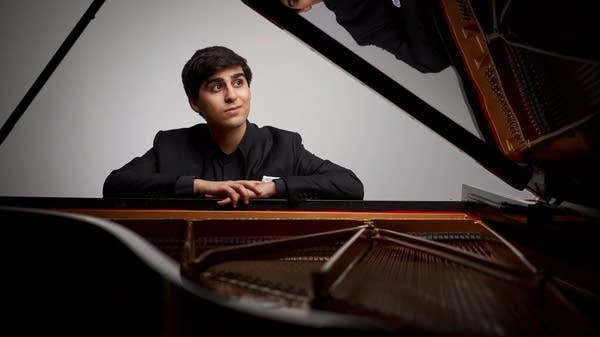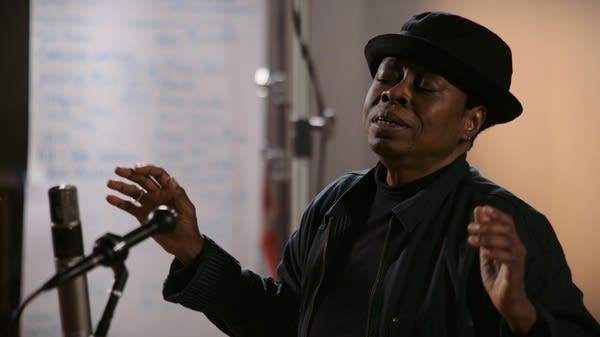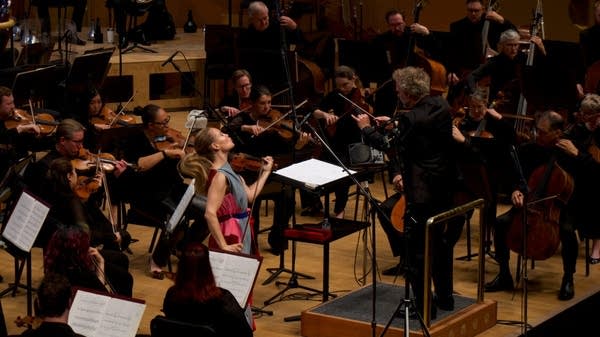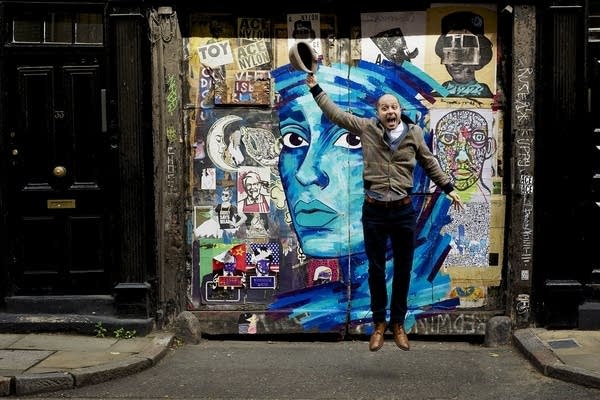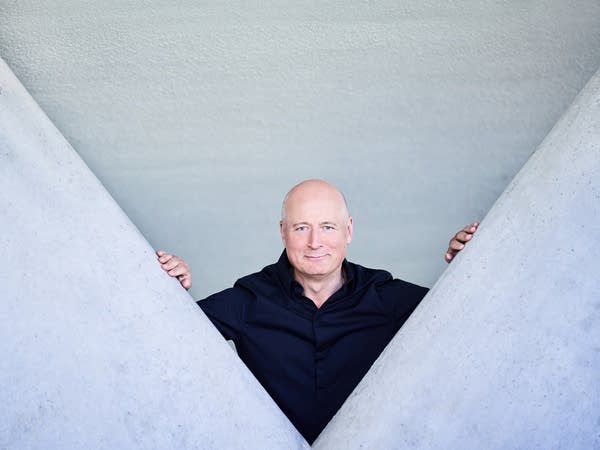
The new disc from the Emerson String Quartet actually features sextets. It's also their final disc with their longtime cellist David Finckel.
"Perhaps these are two different kinds of journeys. In the case of Tchaikovsky, it represents on some level or another, an actual journey that he made to Italy. So you have a sense of Tchaikovsky's geographic trajectory, as well as an emotional trajectory in that piece. And we have to keep in mind that this is one of the last pieces he ever wrote. The Schoenberg, on the other hand, was one of his early pieces... absolutely staggering that a 25-year-old self-taught musician could have done something like that." That's violinist Eugene Drucker describing the two journeys, which appear on the latest release—entitled Journeys— featuring the Emerson String Quartet.
Drucker says this past season was an emotional one for the ensemble because time after time, in city after city, they knew it was going to be the last time they'd perform with cellist David Finckel, who has stepped down after 34 years, making way for the ensemble's new cellist, Paul Watkins. Journeys marks Finckel's final recording with the Emerson String Quartet. "I think that the recording was a fitting one as the end because these are two extremely emotional, high-powered pieces," Drucker explains.
Drucker says it's also unusual repertoire for the Quartet since these pieces are sextets, requiring two additional players. "A number of people wanted to know - was Paul Watkins playing second cello in this recording. And as a matter of fact, it was another wonderful English cellist, Colin Carr, who is a colleague of ours at Stony Brook University. He was playing second cello and Paul Neubauer was playing second viola. And those two gentlemen have been frequent collaborators of ours over the last few years. Whenever we had to play string quintets or sextets, it was usually one or both of them. And we had previously had recording plans with them, something that didn't quite pan out, so it was the most natural thing in the world for us to make this recording with them. They're both magnificent pieces that embody, one might say, different definitions of Romanticism."
Tchaikovsky's "Souvenir de Florence" was composed shortly before his death in 1893. It was conceived during his travels to Florence and Venice. "But the only movement that seems at all Italian or Italianate is the second movement, the aria and the outer sections of the second movement. And in between is a very kind of windy, dark modal section that sounds to me more like wind blowing across Russian steppes," Drucker explains. "And I might add this is one of the handful of pieces in which Phil Setzer and I have actually switched roles over the years, as first and second violins, so I know how gratifying it is to play that melody and I'm also glad to be in the supporting role in the Tchaikovsky as second violin providing kind of rhythmic leadership for the ensemble when the first violin is intoning a melody, so to speak, or going off on a melodic tangent."
As second violinist, Drucker says he also gets to employ a very fun technique in the third movement of Tchaikovsky's piece as the main part is reprised. "Tchaikovsky adds a kind of flamboyant saltando passage for the second violin as a kind of overlay and the melody is played beneath that. Also, the second cello has some very interesting things to do in that moment as well. So Tchaikovsky demonstrates a fair amount of textual ingenuity here because he's able to bring back the main theme in a da capo section and yet overlay it with these other materials that fit in absolutely perfectly. But before that, the middle section has a lot of this saltando or we sometimes call it ricochet, because we sort of throw the bows onto the string and let either two or three notes bounce in the same direction as the bow stroke."
"'Verklärte Nacht' is a tone poem," Drucker clarifies. " It was written, I think, in 1899, when Schoenberg was 25 years old. It is a piece of program music in that it sets a poem by Richard Dehmel, a well-known poet around that time. A poem in which the idea of illicit love - what was then considered illicit love...you know, a woman who yearned so much for motherhood that she had sex with a man that she didn't have deep feelings about. And she did get pregnant and then she has met the man with whom she has truly fallen in love. So the poem is a confession to this man whom she loves that she is carrying a child by another man."
"And then things get transfigured around the middle of the poem and the middle of Schoenberg's sextet when the man speaks. They're walking through the woods, by the way. And I would say that 'into the woods' is both supposed to be a description of the actual woods in which they're walking and also metaphoric, that the woman is taking a great risk by the mores and standards of that period by making this confession to the man. The man is completely accepting and magnanimous and says that this night will transform, transfigure everything and the child will be the child of both of them."
Love the music?
Show your support by making a gift to YourClassical.
Each day, we’re here for you with thoughtful streams that set the tone for your day – not to mention the stories and programs that inspire you to new discovery and help you explore the music you love.
YourClassical is available for free, because we are listener-supported public media. Take a moment to make your gift today.
Your Donation
About New Classical Tracks®
Host Julie Amacher provides an in-depth exploration of a new classical music release each week.
Subscribe on Apple Podcasts, TuneIn, Radio Public, or RSS.



